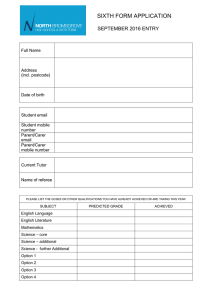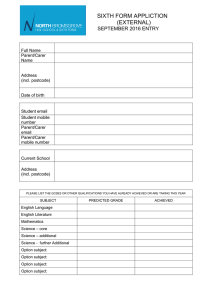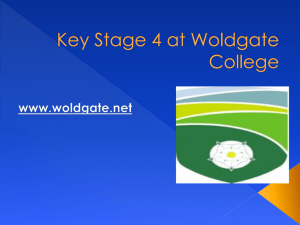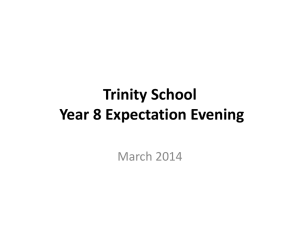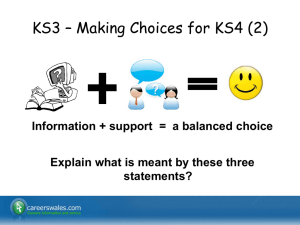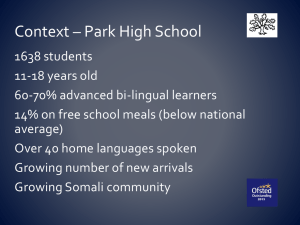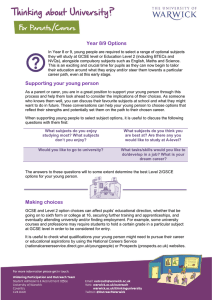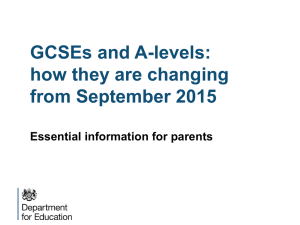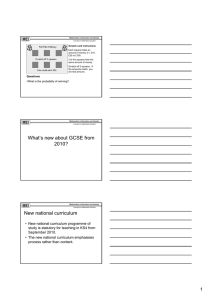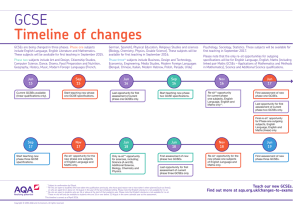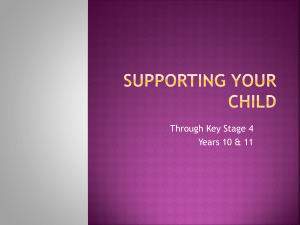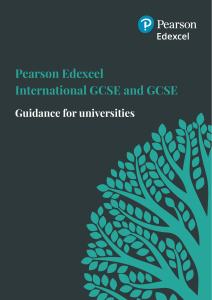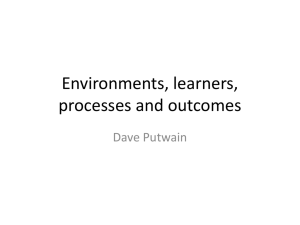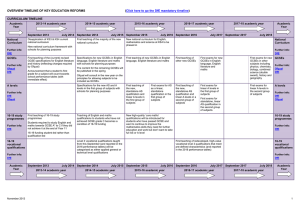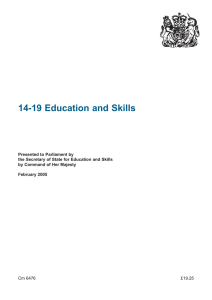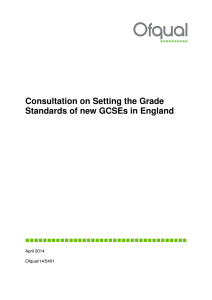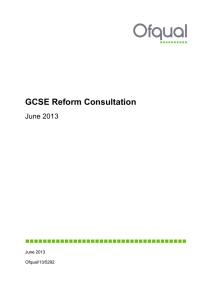Presentation – Year 8 Curriculum Info Evening
advertisement
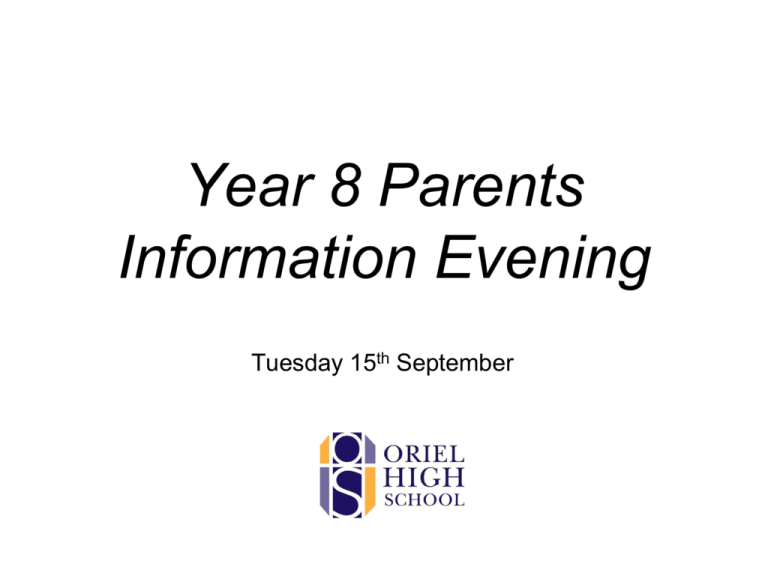
Year 8 Parents Information Evening Tuesday 15th September Aims of this evening • Summarise the main changes to qualifications and the curriculum affecting our students • Explain how Oriel will report achievement in light of these changes Context • Most significant curriculum and qualification reform since 1986 when GCSEs were first introduced • Scale and pace of the changes have posed real challenges for schools • ………and have had implications regarding the way in which we structure our curriculum • ………but also give us opportunities to change what we do to ensure we best prepare our students for their futures in a changing society. • Your involvement in these changes is crucial to us so that we can all support our students. Year 7-9 Year 10 & 11 Year 12 & 13 National Curriculum GCSEs A Levels National Curriculum • New National Curriculum from September 2014, which affects the skills and content that are taught at KS3. • New schemes of work in Y7, 8 and 9 reflect these changes • National Curriculum Levels are being removed from September 2015. GCSEs (General Certificate of Secondary Education) • New GCSE English Language, Literature and Maths exams from September 2015 (affects current Year 10 first) • New GCSE exams in other subjects from September 2016 (affects current Year 9 first). • By September 2017 when our Y8 students move into Y10 GCSEs in all subjects will have been reformed Changes to GCSEs • The new GCSE examinations will be more challenging for students. • Exam as default method of assessment. • All examinations at the end of Year 11. • New grading system of 1 to 9. GCSE Maths • Much larger volume of content – the GCSE is approximately twice the size of the previous maths GCSE • Stretches the most able students, preparing them thoroughly for the study of A level maths • A greater emphasis on problem solving GCSE English • There will be greater emphasis on accurate use of spelling, punctuation and grammar. • No Controlled Assessment • 100% Examination Maths 8 Hours Science 7 Hours English 8 Hours Humanities Arts (Art, Music and Drama) 6 Hours Languages 6 Hours Technology 2 Hours Computing 2 Hours PE & PDC 5 Hours (Geography, History, RE) 6 Hours Post 16 study 10 5 1 Key Stage 2 OHS Assessment: Key characteristics: • Graded 10 - 1. No sub levels or grades! • Sequential and progressive system. • Individual subjects define assessment objectives & performance descriptors at each level. • Key reference points; 4 / 5 / 7 / 8 / 10 • Singular system yr 7 to 11. Progress: • Aiming for at least 1 grade of progress per year. • More regular home / school contact: mentor contact / parents evening / summary report. Reporting • Real time reporting via GO4Schools. www.go4schools.com • Parental & student engagement is vital! • Interim reporting will show teacher perception on progress. • Students may take longer to show progress. Underpinning beliefs: • Quality first teaching secures high quality progress. • Challenge for all. • Hard work & application makes it possible for all to succeed. • Feedback imperative; receiving & response. • Home / school partnership secures student success. Assessing starting positions on the new system Accepting that enduring, secure progress takes time to achieve Working with awarding bodies as they finalise specifications
